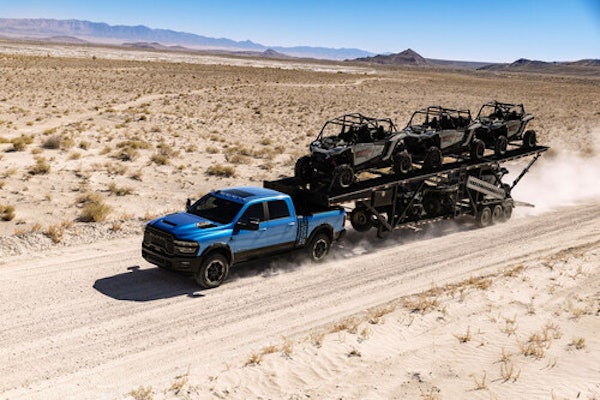![shutterstock_80737924[1]](https://img.equipmentworld.com/files/base/randallreilly/all/image/2013/06/eqw.shutterstock_807379241.png?auto=format%2Ccompress&fit=max&q=70&w=400)
It’s right in front of us in our everyday lives, but sometimes we don’t see it.
That’s our transportation infrastructure system out there, one we pay for. We value it, but largely we don’t know what comes out of our pockets every month to maintain and improve our roads, bridges and public transit.
We want a safe, efficient and well-maintained transportation infrastructure. In fact, according to a new survey, about 80 percent of us say it is at least, if not more, important to us than cable, cell phone, Internet, water, sewage and household electricity and natural gas services.
But we know what we pay for those other things. It’s right there in our monthly bills.
The survey, commissioned by the American Road and Transportation Builders Association (ARTBA), shows we really love driving (78 percent say driving a motor vehicle is “very” or “extremely” important to our ability to conduct our daily lives.) We appreciate riding public transportation (21 percent, including 34 percent of low income respondents). And the vast majority of us (88 percent) say transportation infrastructure is important to maintaining a strong U.S. economy and important in ensuring national defense and emergency response capabilities (83 percent).
As you might expect 74 percent of us agree that “investing in transportation infrastructure should be a core function of the federal government.”
That’s the forest. The trees we’re not seeing.
A stunning 40 percent of survey respondents say they “don’t know” how much their household pays each month in gas taxes (the basic source of highway funding)
FHWA says the average U.S. household paid $46 per month in gas taxes in 2011—the most current year available. One-quarter of survey respondents (24 percent) estimated they pay more than double that.
ARTBA, citing Commerce Department 2011 data, points out that the average household spends about three-and-a-half times more each month for household electricity and natural gas service ($160) than we pay in state and federal gas taxes. We also pay three-and-a-half time as much monthly, on average, for landline and cell phone service ($161) and nearly two-and-a-half time as much for cable and satellite television, radio and Internet access ($124).
 [email protected]
[email protected]Do you get upset when your cable goes out and the cable guy will (might) be there sometime between now and next Wednesday? When your Internet connection collapses, there are no bars on you cell phone or the sewage backs up? Well, you’re paying for your highways and bridges too, and they may just start having some equally frustrating performance issues in the not too distant future if we don’t invest more in them.









